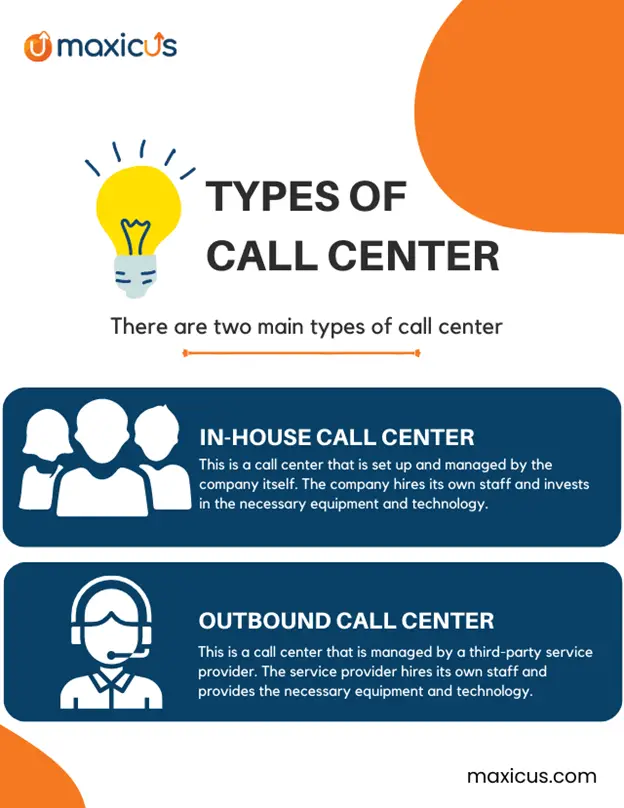According to a report by Grand View Research, the global call center outsourcing market is expected to reach $13.1 billion by 2025, driven by cost savings, scalability, and the need for specialized expertise. In today’s competitive business landscape, companies always look for ways to streamline operations and improve efficiency while reducing costs.
One such solution that has recently gained popularity is call center outsourcing. By outsourcing their customer service operations, companies can reap various benefits, including cost savings, enhanced efficiency, scalability and flexibility, improved customer service, access to advanced technology, risk mitigation, and the ability to focus on core competencies.
What is a Call Center?
A call center is a centralized office where customer service representatives handle incoming and outgoing telephone calls on behalf of a company. Call centers can be set up in-house or outsourced to a third-party service provider.
What is Call Center Outsourcing?
Call center outsourcing is the practice of hiring an external service provider to handle an organization’s incoming and outgoing customer calls. This involves transferring the responsibility of managing customer interactions, such as inquiries, support, sales, and other related services, to a specialized third-party company.

The outsourcing provider typically operates from a different location, allowing businesses to reduce costs, enhance efficiency, and focus on core activities while maintaining customer service standards.
Types of Call Centers

Let’s understand it deeply.
In-house Call Center
An in-house call center can offer advantages, including greater control over operations, customization, and integration with the company’s overall strategy. However, it also comes with challenges, including higher costs, the need to invest in equipment and technology, and the difficulty of attracting and retaining skilled employees.
Advantages:
- Greater control over operations
- More customization
- Better integration with the overall strategy
Disadvantages:
- Higher costs
- Need to invest in equipment and technology
- Difficulty in attracting and retaining skilled employees
- Inability to focus on other business tasks
Outbound Call Center
On the other hand, outbound call center services can offer significant benefits in terms of cost savings, scalability, and access to specialized expertise. By partnering with a reputable call center outsourcing services provider such as Maxicus, companies can benefit from the latest technology, skilled staff, and flexible pricing models.
Advantages:
- Cost savings
- Access to specialized expertise
- Scalability and flexibility
Disadvantages:
- Language and cultural barriers
- Loss of control over operations
- Potential communication issues
The Advantages of Call Center Outsourcing

Let’s deep dive into it.
Cost Savings
One of the primary advantages of call center outsourcing is cost savings. By partnering with a third-party provider, businesses can reduce labor costs, eliminate overhead expenses, and access cost-effective technology. This can result in significant savings for businesses, particularly those looking to scale their operations.
Enhanced Efficiency
Another advantage of call center outsourcing is enhanced efficiency. Third-party providers can provide businesses with specialized expertise, increased availability and reduced wait times. This can result in faster response times, improved customer satisfaction, and higher retention rates.
Scalability and Flexibility
Call center outsourcing also allows businesses to scale their operations up or down as needed. Companies can adjust their resources based on seasonal fluctuations, market demand, or other factors. This can result in improved agility, greater flexibility, and reduced operational costs.
Improved Customer Service
Call center outsourcing can also result in improved customer service. Third-party providers can provide businesses with enhanced customer experience, multilingual support, and 24/7 availability. This can result in higher customer satisfaction rates, greater loyalty, and improved brand reputation.
There are some more hidden advantages of call center outsourcing.
Risk Mitigation
Another benefit of call center outsourcing is risk mitigation. Call center providers are well-versed in industry regulations and compliance requirements, reducing the risk of data breaches and other security issues. They also have robust disaster recovery capabilities, ensuring businesses can quickly recover during a crisis.
Focus on Core Competencies
Finally, call center outsourcing allows businesses to focus on their core competencies. This can help businesses to stay competitive and drive growth. Outsourcing their call center operations will enable companies to free up valuable resources and focus on their core business activities, such as product development, marketing, and innovation.
How to Choose the Right Call Center Outsourcing Partner
To ensure a successful outsourcing partnership, businesses should conduct research and due diligence when selecting a provider.

This includes evaluating their track record, reviewing their experience in your industry, and checking their references. Clear communication and expectations are also critical, as businesses should ensure that their providers understand their goals and expectations for the partnership. Finally, flexible contract terms help ensure the partnership is aligned with the business’s needs and goals.
Final Words
The advantages of Call center outsourcing are numerous, including cost savings, enhanced efficiency, improved customer service, access to advanced technology, risk mitigation, and the ability to focus on core competencies. However, businesses should also be aware of the potential challenges, such as language and cultural barriers, loss of control, and communication issues.
By selecting the right partner and establishing clear communication and expectations, businesses can ensure a successful outsourcing partnership that boosts.
